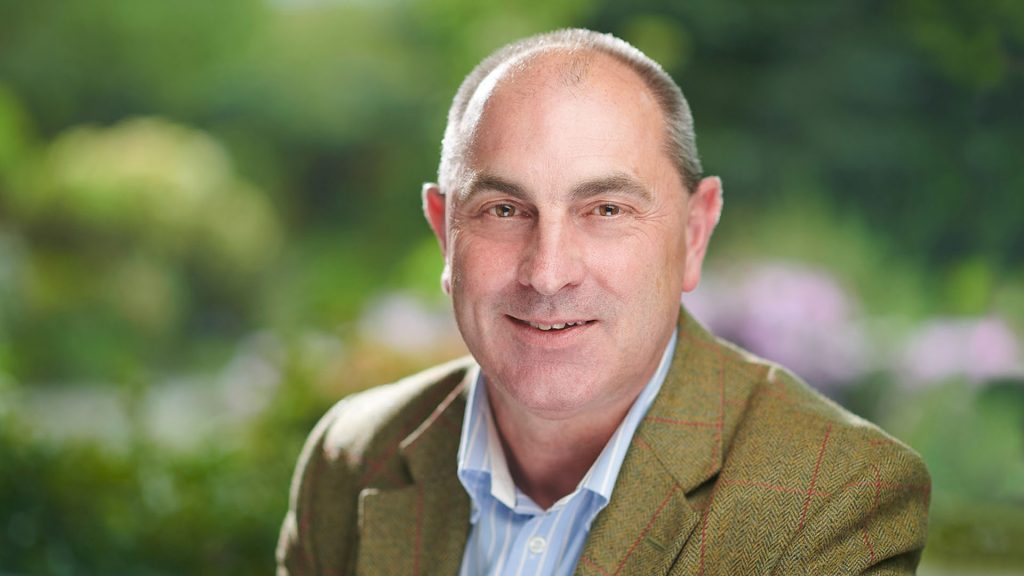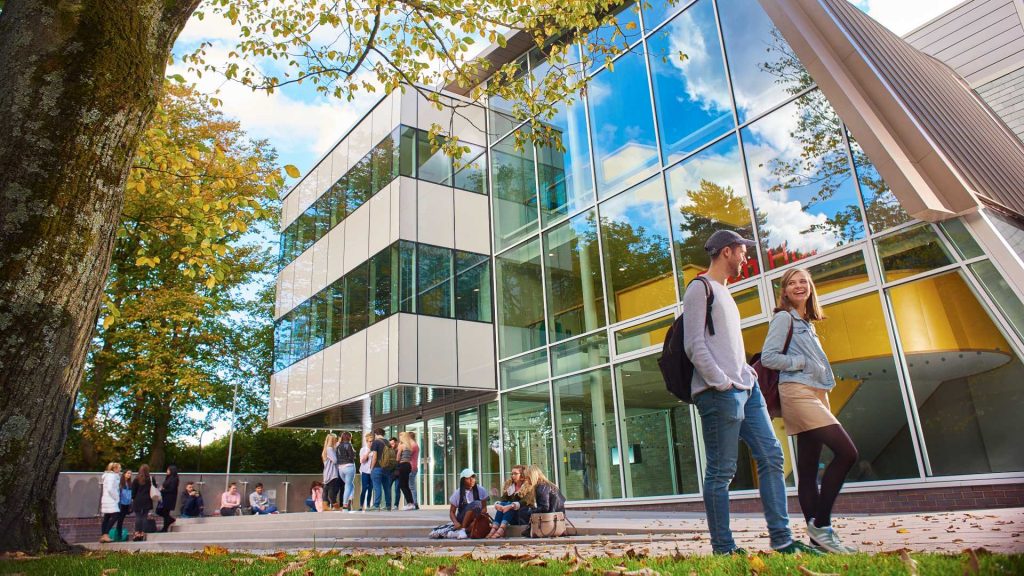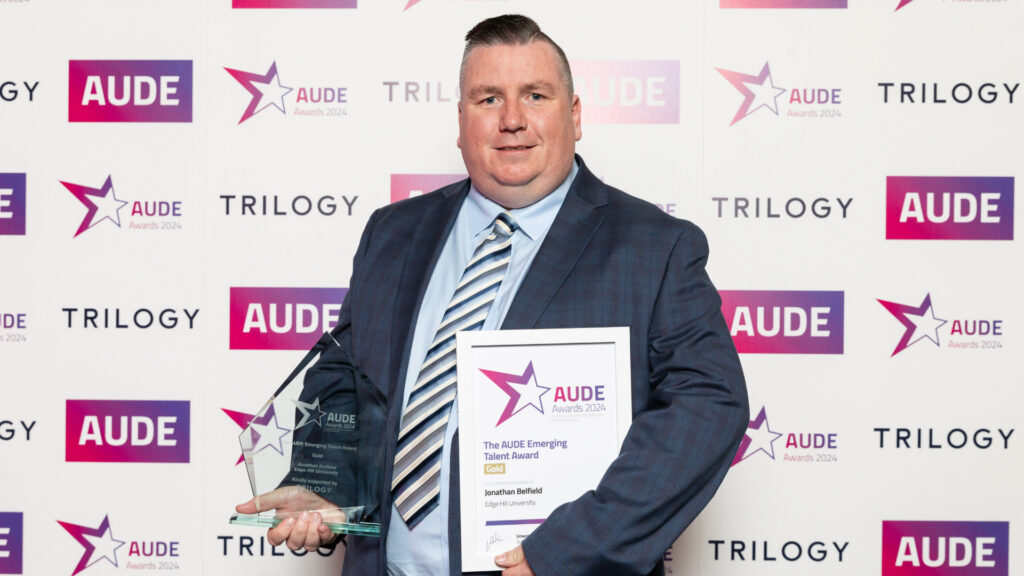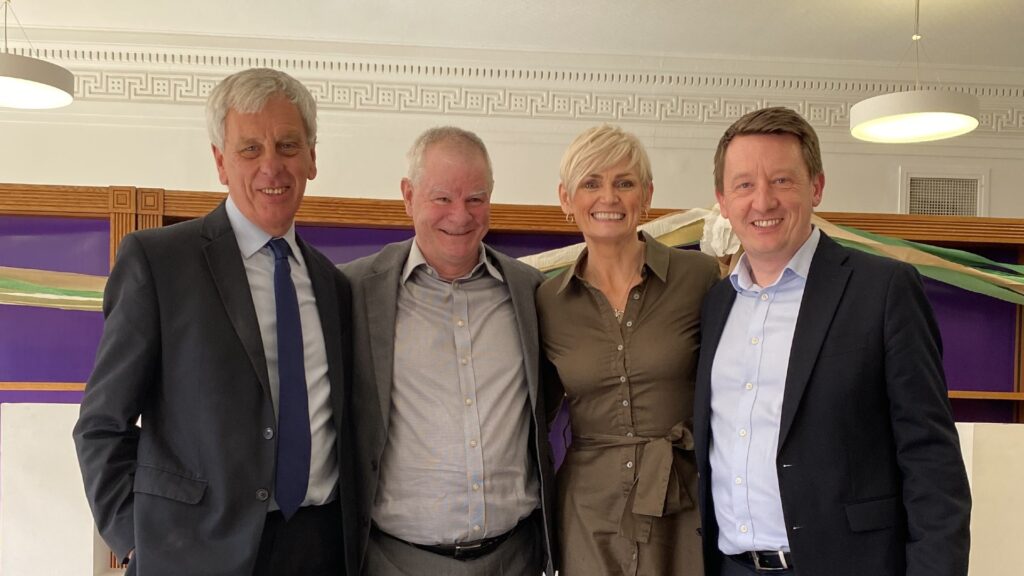Here at Edge Hill University, our growing engineering provision gives students an exciting and practical environment in which to grow your interest into a passion. Our Associate Head of Engineering, Professor Ray Sheriff, brings his 30 years’ experience as an academic, plus industry experience in satellite communications engineering, to the heart of the modules he teaches to our engineering students.
At Edge Hill University, you’ll be taught by experts in their field, who apply real-world context to all your learning. Academic staff like Ray continue to work on large scale, international projects that contribute to global change alongside their teaching. This means you can be assured you’ll be up-to-date with current developments in the field of engineering, and will have an idea of exactly where your knowledge and skills could be applied in the real world. We caught up with Ray to find out a little more about his research, the international projects he’s worked on, and the newly launched engineering degrees at Edge Hill.

What drew you to the field of engineering to begin with?
From early on in my own education, mathematics always just clicked in my mind and I really enjoyed studying it. Having grown up in the North East, an area with plenty of opportunity to apply my love of maths to the engineering industry, this is what encouraged me to study electrical and electronic engineering at university. From my undergraduate degree to now, I’ve had opportunities to travel the world and work on international projects that have changed the telecommunications engineering landscape.
What’s one of the biggest projects you’ve worked on?
In 1991, when the world wide web was still in its infancy and digital mobile phones first began to appear on the streets, I started research on the third generation of mobile satellite and cellular networks – better known as 3G. From this point on, the boom of growth in mobile devices over the last 30 years has meant that as telecommunications engineers, we always need to work 10 years ahead of the market to keep up with consumer demand. I travelled all around Europe working on 3G, 4G and 5G – seeing the impact my own research and work, and that of thousands of other highly-skilled engineers, was having on a global scale. Each time a new network is developed, it needs to be faster than the one before. It’s my challenge as a telecommunications engineer to research the most effective ways to shrink the transmission cells down further, so that the network can accommodate more data with minimum power and better quality. Currently, I’m working on researching the next generation – the 6G network. That’s one of the things I love about electrical engineering, innovation never stops and you really can grow with the subject, and that’s what makes it so exciting.

How do your research projects feed into your teaching at Edge Hill?
Because I’m always working on research projects alongside my teaching, it means I’m able to stay up-to-date with the developments across the sector, and bring updates with me into the classroom. Here at Edge Hill, we’re training our engineering students to be as work-ready as possible, and one of the best ways to do that is to ensure all their theoretical learning is underpinned by real-world examples. I’ve got a really good network of industry professionals, so I can tap into these to get their input when we develop our degree programmes and the specialist modules we teach. The things our students learn on their undergraduate degree are always reflective of the current landscape within the industry.
What’s the best thing about studying or working in engineering?
For me, it’s the fact that engineering is a common language. The same concepts and methodologies exist across the globe. So it doesn’t matter what language you speak, where you trained or where you come from – you can work collaboratively with people from around the world. There are fantastic travel opportunities, too – I’ve been fortunate enough to visit and work in countries including France, Germany, Italy, Malaysia and China. I regularly visit China to collaborate on research, and to teach telecommunications engineering at Sichuan University, where I am a visiting professor.
Why is this such an exciting time to join our engineering programmes?
This year, we’re launching brand new undergraduate BEng and MEng degrees in mechanical engineering, and electrical and electronic engineering– in addition to our electrical engineering and intelligent automation & robotics, and electronic engineering suite of programmes. We have plans to develop even further over the next few years, so there will be something for everyone, no matter what you choose to specialise in, be it autonomous vehicles, intelligent automation, renewable energy, or smart grid power systems. And you don’t need to worry too much if you aren’t sure which programme is the best fit for your interests – as you’ll have the potential to switch to one of the other engineering programmes after your first year of study. We are continuing to develop our state-of-the-art laboratory facilities to reflect our growing engineering provision and following our recent investment in our electrical and electronic engineering teaching laboratory, you will have access to industry-standard equipment like oscilloscopes and signal generators. Our new Materials Engineering laboratory hosts a tensile tester, which allows you to explore the properties of materials, and our new Electrical Machines laboratory is furnished with electric motors and cutting-edge power electronics test kits for hands-on experimentation. By applying theoretical knowledge in the lab throughout the course, our students will graduate with the technical experience needed to work in the industry. I’m really excited to welcome a new cohort of students this year, and for them to be a part of this exciting new chapter within the Department of Computer Science.
September 8, 2022


